The Colony: Press conference with Florian Gallenberger and Richenda Carey
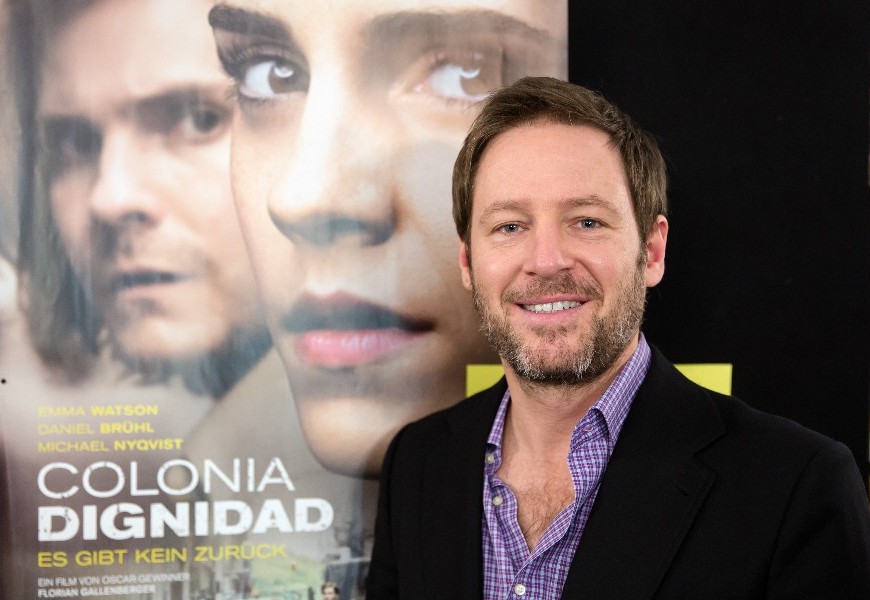
Florian Gallenberger’s film The Colony is set during the Chiliean coup d’état of 1973, starring Emma Watson and Daniel Brühl. At the press conference, the director and actress Richenda Carey discussed their experiences of making the movie, the Colonia Dignidad and the horrific history of this military coup.
When did you first learn about the story?
FG: I first heard about it when I was nine years old in 1981. It was quite a scandal in Germany and we had a school teacher in elementary school who showed us a TV report on the Colonia Dignidad. I had a really strong emotional reaction to what I saw then. Of course, I forgot about it for many years and then seven or eight years ago I read about it once again in the newspaper and I remembered. I started to go online and research and found out that it still exists as a Bavarian Village called Villa Baveria. The story is much bigger now than I ever knew.
How can it still exist?
FG: It’s private property, they own it. It was extremely well established and in a way no one can take it away from them. The founding generation there can’t live anywhere else because they have been living in that system for many years, and i don’t see them living in a normal society. The young ones have left and there’s about 180 people still living there. The irritating thing is that they are now trying to survive on tourism. It’s very strange because if you know what happened there, in those rooms and you’re sitting there listening to the Bavarian folk music…it’s very weird.
Did they let you film there?
FG: No we didn’t film there. Of course, we thought about whether it would be possible to shoot there but i think nobody knows what will happen if you end up with an actor who looks and acts like Paul Schäfer. It’s particularly difficult for the older generation as, if they condemn him, they are condemning their entire lives. There was a group of younger members who supported the movie, one who was with us on the shoot as our expert, but literally everyone else didn’t want this movie to happen because they are still trying to cover up and ignore what happened. The older ones, they couldn’t do anything against the movie, but for them it is clear that I am going to hell.
What was the role of the German Embassy at the time?
FG: The Colonia itself is a scandal but the role of the embassy is the second scandal. A lot of the members of the cult tried to escape because life was practically hell in there. They risked their lives to go to the embassy and what the embassy did for more than 25 years is send them all back.
For 30 years until now nothing has happened, all the archives concerning the Colonia Dignidad had been closed and weren’t available to the public, until six weeks ago. The film was viewed in front of the German ministry and a speech was given saying that the movie was needed to give them a push to look at our own history and ask questions about our own behaviour. They then decided to open the archives and the classified material for historians and journalists to look at.
Was it a difficult film to shoot?
FG: Somehow every film is a difficult film to shoot, but it was very difficult in this case for many reasons. We initially wanted to make this as a German film but it turned out that it would be impossible to raise enough money in Germany to make a film that size. The choice then was to either forget about the project or try to shoot it in English with, potentially, a bigger market. When Emma (Watson) took on the part, that changed the project into a different film entirely, which was absolutely great.
The making of the film was difficult in that, for financing reasons, we shot half of the colony in Luxembourg and half of the colony in Munich. It puts a lot of pressure on you and you feel insecure about whether that will work together and whether it will fit together. As always, it was too little time, too little money and too little of everything but I think that’s just the reality of filmmaking. Apart from that, it was also a great experience and we were a great crew who had the desire to make the film work.
Richenda, how did you channel the part of Gisela?
RC: My Father would have said that he obviously didn’t smack me enough when I was a little girl [laughs]. I think what it is is that nobody gets to be that horrible unless they are devoid of love and brutality, ignorance and hardship are what they are used to. I think it was as simple as that: when there is no love, you’ve got no love to give. You see it here with the social services where these poor children are brought up and they themselves are the ones who turn into the abusers because they know nothing else, and if you know nothing else that’s all you can do, really.
How did the role play on your conscience?
RC: It obviously wasn’t very comfortable, but I think you simply have to put yourself in a place where you were that person, brought up in a loveless way. Obviously, it’s very uncomfortable to play someone that cruel and unpleasant but that’s the game and that’s what we do. Michael found it incredibly hard playing Paul, that was a really horrible journey for him.
FG: I remember you suffered when you had to beat Emma with that rolled up piece of hosepipe and you were just resisting. It was difficult for Richenda, she didn’t feel too great about it.
RC: Emma being a third of my age and a third of my size! This was the first day of shooting and I was given a rolled up piece of hosepipe and was told I had to whip Emma, one of the world’s most popular actresses! And I questioned it and Florian was like, “yes, you do”.
FG: Now that makes me look very bad [laughs].
How do you feel her fans will react to seeing Emma in a very different role?
FG: I have no idea. I think that the role is something entirely different: here she plays an adult woman, which is something she hasn’t done before. It was important for her to take the part so she could show that it’s not only teenage girls that she can portray. Another thing she cares about is that it is the girl who saves the boy and not the other way round, as it normally would be. This was something she really cared about and goes hand in hand with her work for female empowerment.
Do you feel as though it’s your duty to unearth and tell these stories?
FG: I first found it interesting and then I started to research and got deeper into it. You get to know the people and you see what this really did to their lives. I know that the younger ones in particular suffered so much because, on the one hand, there is the shame that comes with the abuse and being part of the community, but on the other, there is nobody who they could talk to about it. I really started to care for them, so for me if the movie works as an acknowledgment of what happened to them and has a liberating effect, that’s the best outcome.
Was it difficult to recreate such a dark story?
FG: It’s a long process of scriptwriting and research. It’s a dialogue with a very true history. A lot of the things you see in the film happened like that. The Colonia did videotape quite a bit of their everyday life but everything that is on these tapes is a very polished version of reality. You see them laughing and waving at the camera but among these tapes there are other things as well. I couldn’t have cooked the darker moments up, it really happened like that. You’re working your way closer and closer to the centre of the system and there is so much evil in it that you don’t have to add anything. Life was way worse than what you see in the movie.
Chloe Sizer
Photo: Manfred Werner
The Colony is released nationwide on 1st July 2016.
Read our review for The Colony here.

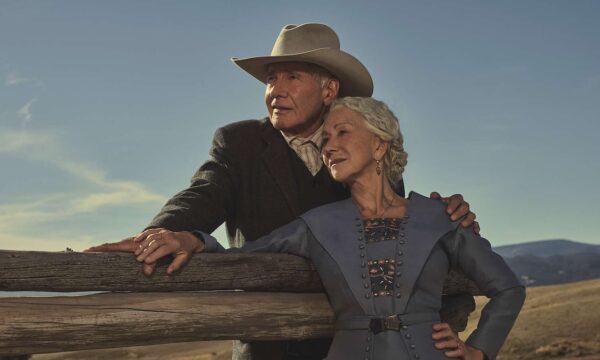
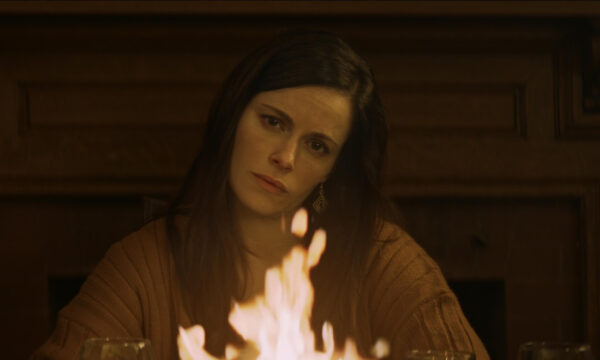
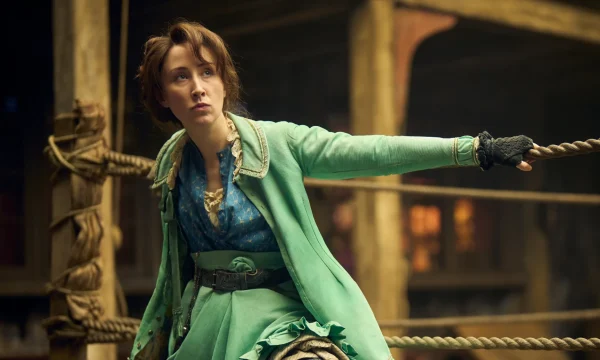
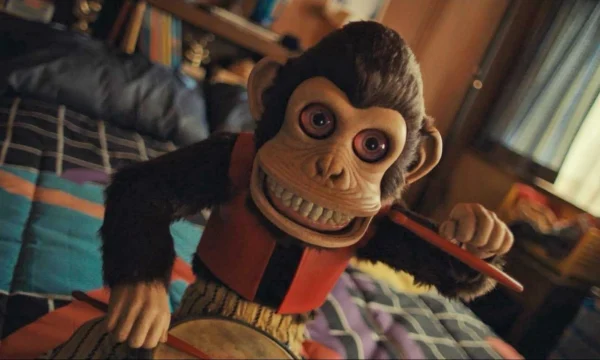
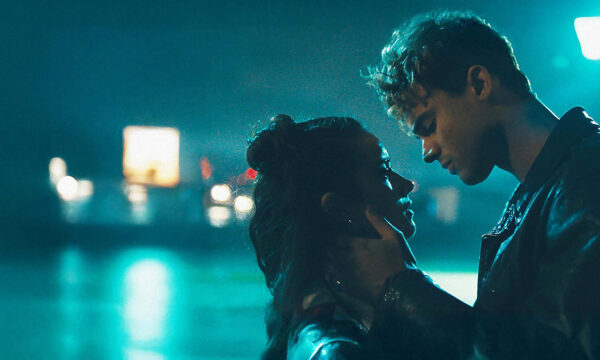
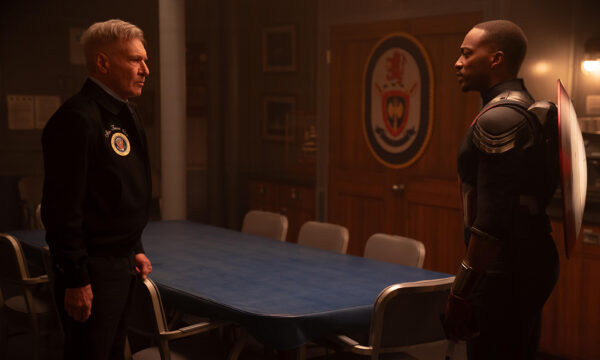
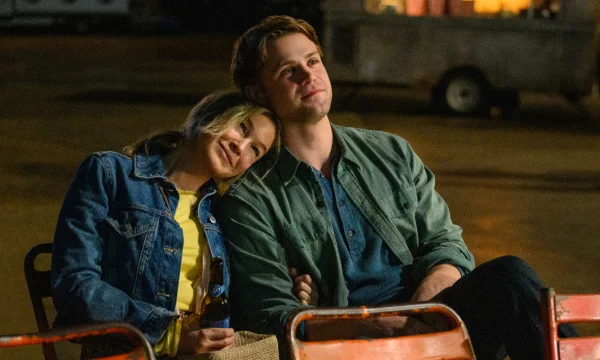

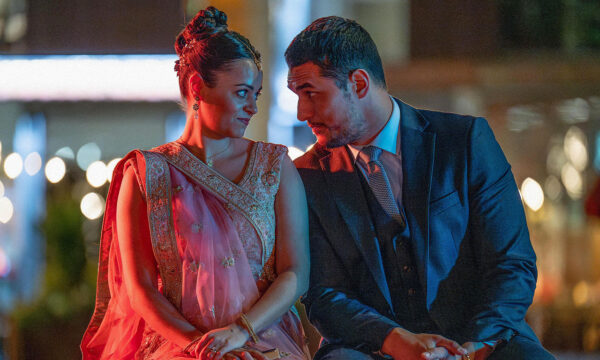


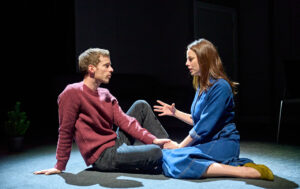
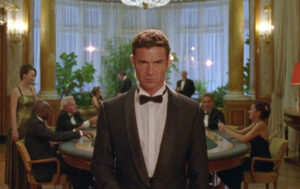




Facebook
Twitter
Instagram
YouTube
RSS